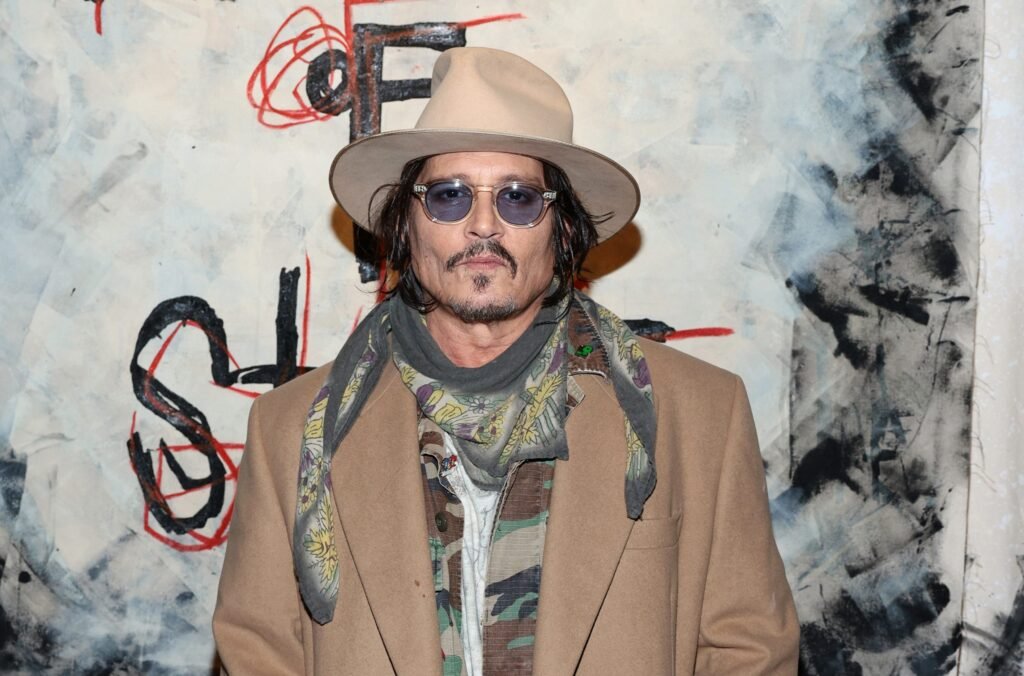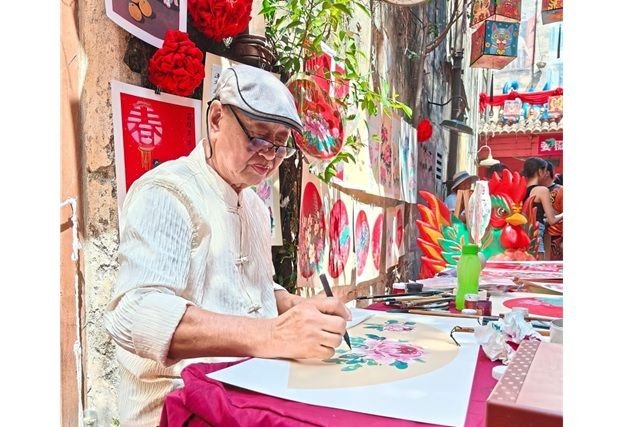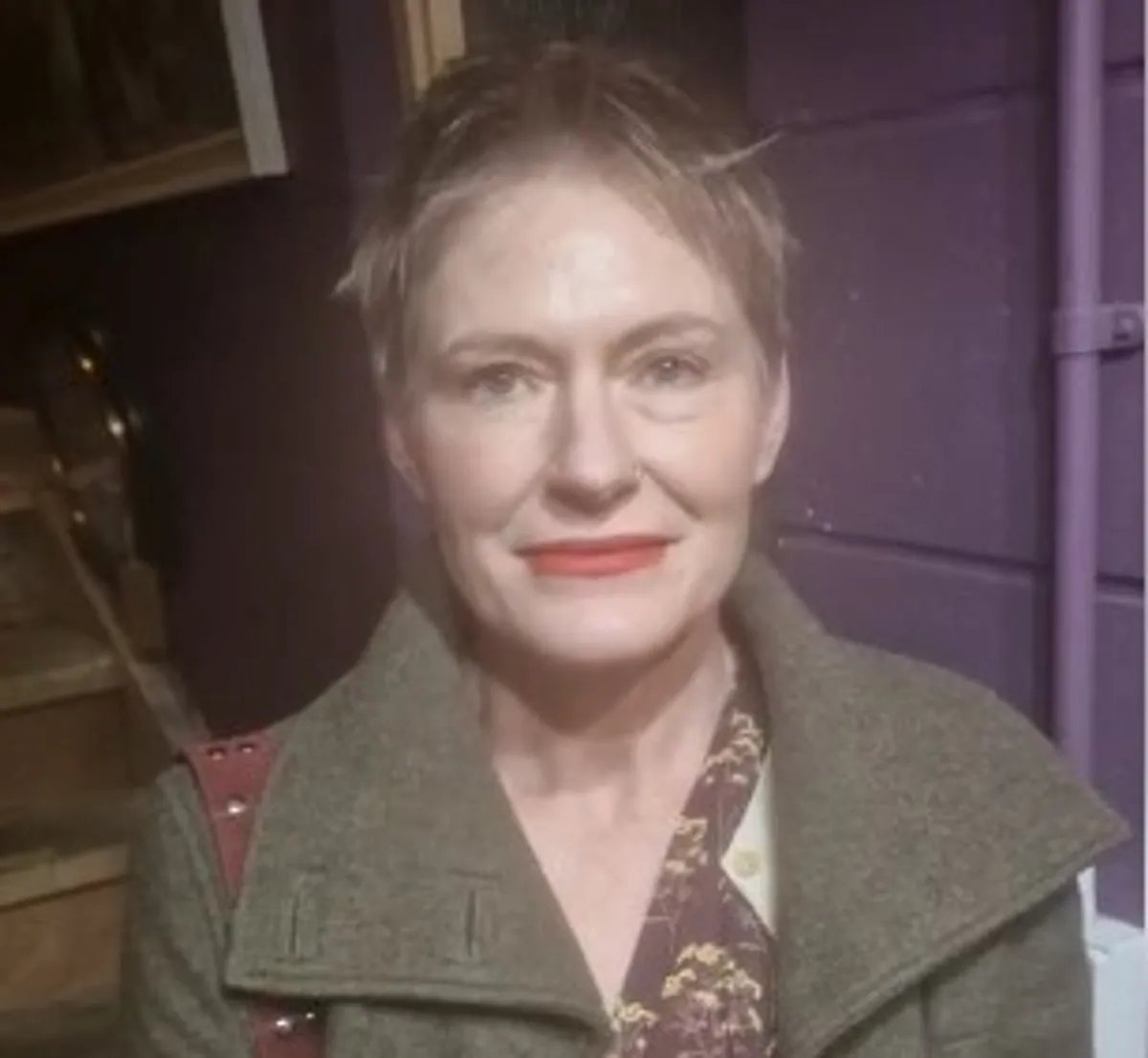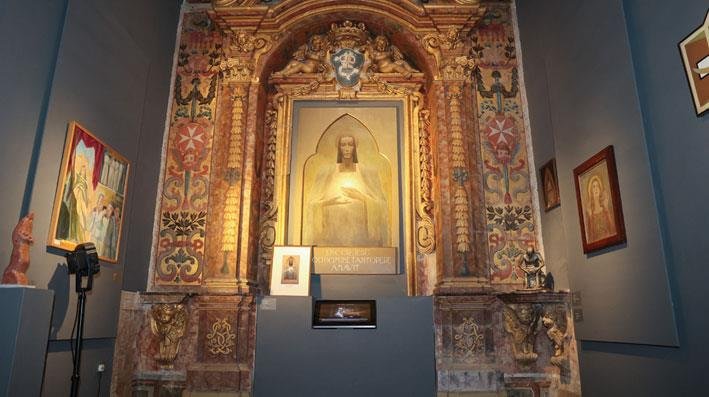Johnny Depp, not content with playing a gangster, chocolatier, and man with scissors for hands, has landed his greatest starring role yet: artist. Don’t believe it? The beloved actor and musician has now opened a massive exhibition of his art in New York to demonstrate his bona fides and illustrate how artistry just flows through his veins, man.
Titled “A Bunch of Stuff,” the show is billed as a “multi-layered immersive exhibition” bringing together various works that Depp has created over the years. “Some may call it art, some may not; I call it mine,” he wrote in introductory wall text. In effect, through his paintings and collages, we’re trailing the artist on his creative journey, which has closely mirrored his personal life. “His art,” as organizer Bau Art touts it, “is emotion made flesh.”
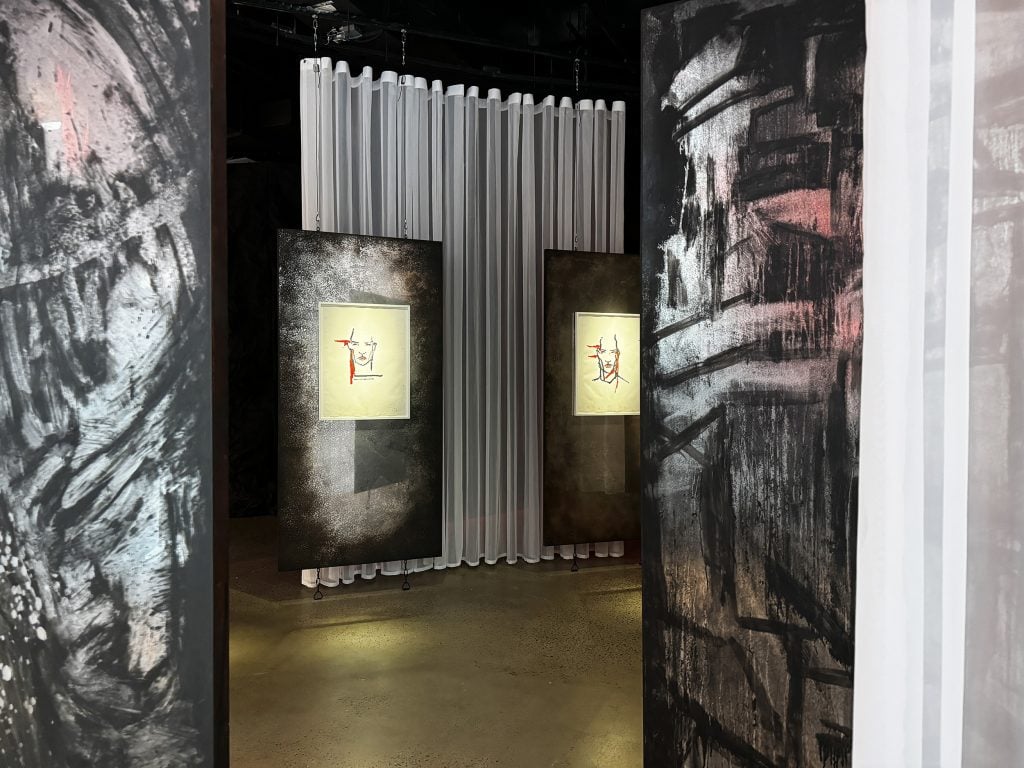
Installation view of “A Bunch of Stuff.” Photo: Min Chen.
The expansive exhibition venue in Chelsea makes that journey literal. One enters the show through a winding path draped with lush red curtains, before being released into an area dubbed the White Box, featuring dozens of thematic works. Another room called the Black Box plays an animated film, while outside of it are pieces of furniture from the artist’s studio and a wall where visitors can leave messages for the star. You exit through a gift shop stocked with merchandise and silkscreen prints.
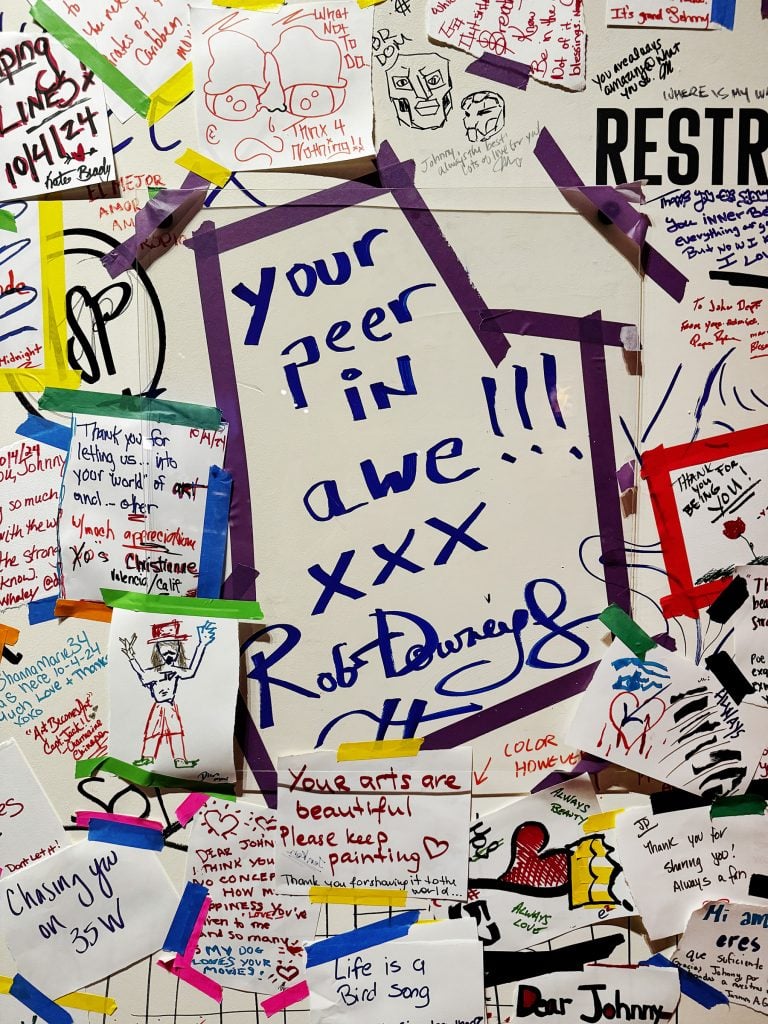
Installation view of “A Bunch of Stuff.” Photo: Min Chen.
It’s as much a showcase of art as it is a trip into Depp’s mind and an unironic exercise in self-mythologizing, fitting for a man who’s come up in show business. (Of note, the exhibition opens as Modi, the Depp-directed Amadeo Modigliani biopic—that modern-day form of hagiography—is making the film festival rounds.) So, what kind of artist is Depp? What’s he been cooking up in the studio? What is his emotion made flesh? Here’s a bunch of stuff in the show.
His word paintings
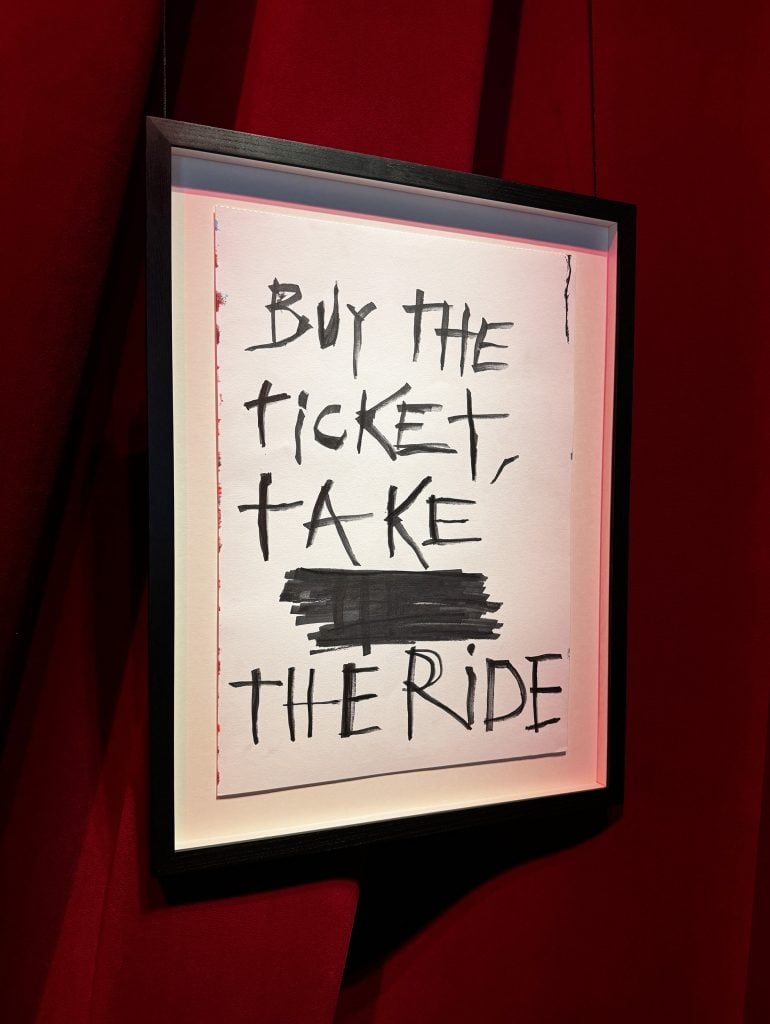
Johnny Depp, Buy the Ticket, Take the Ride (2021) on view at “A Bunch of Stuff.” Photo: Min Chen.
These pieces feature hand-lettering by Depp that spells out various slogans, such as “Question Everything” and “The Joke Is on Us, But Aren’t Jokes Meant to be Funny.” The show’s accompanying leaflet informs us that they “recall” the work of Ralph Steadman—the artist best known for his illustrations for Fear and Loathing in Las Vegas, a non-fiction touchstone by Hunter S. Thompson, who Depp depicted in a 1998 film—though that’s putting things delicately. Fear and Loathing has evidently shaped the actor enough that the show opens with a piece bluntly scrawled with “Buy the Ticket, Take the Ride,” a turn of phrase lifted from Thompson’s famed tome.
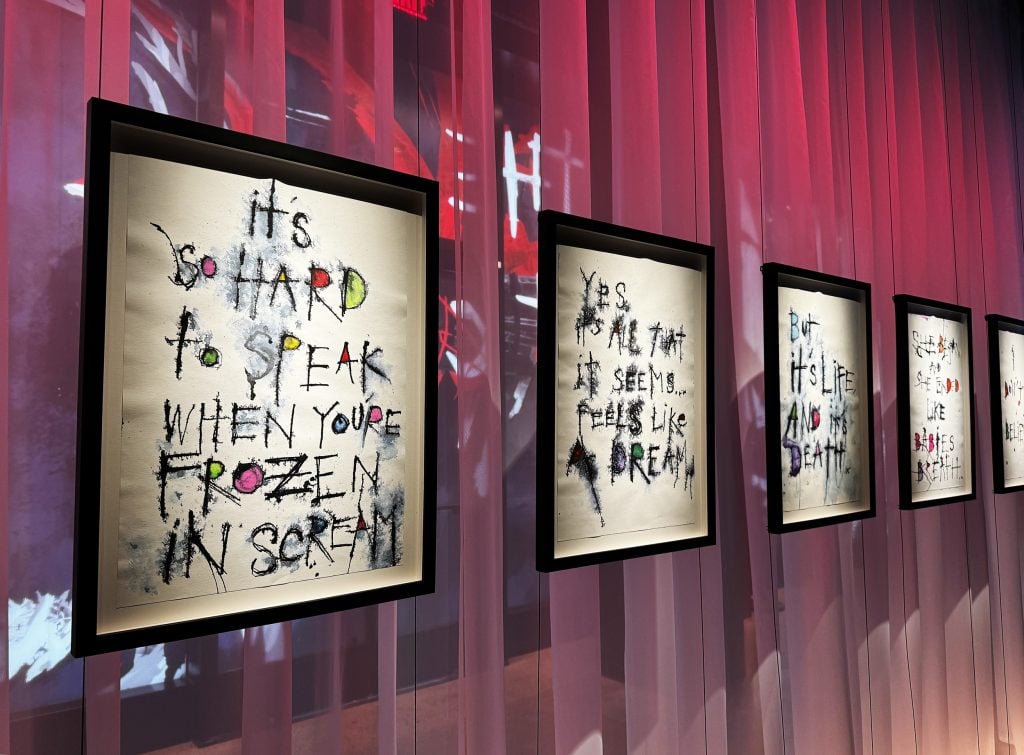
Installation view of “A Bunch of Stuff,” featuring Johnny Depp’s “Hedy Lamarr” series. Photo: Min Chen.
More interesting is his “Hedy Lamarr” series, a sequence of “graffiti-style paintings” with words taken from the Depp and Jeff Beck track about the Hollywood star and inventor. While still obviously aping Steadman’s style, they evince more care in composition, pops of color, and ink blots that echo the lyrics’ sentiment. The most vividly visual piece contains the song’s opening line: “Erased by the same world that made her a star.”
An actual… bunch of stuff
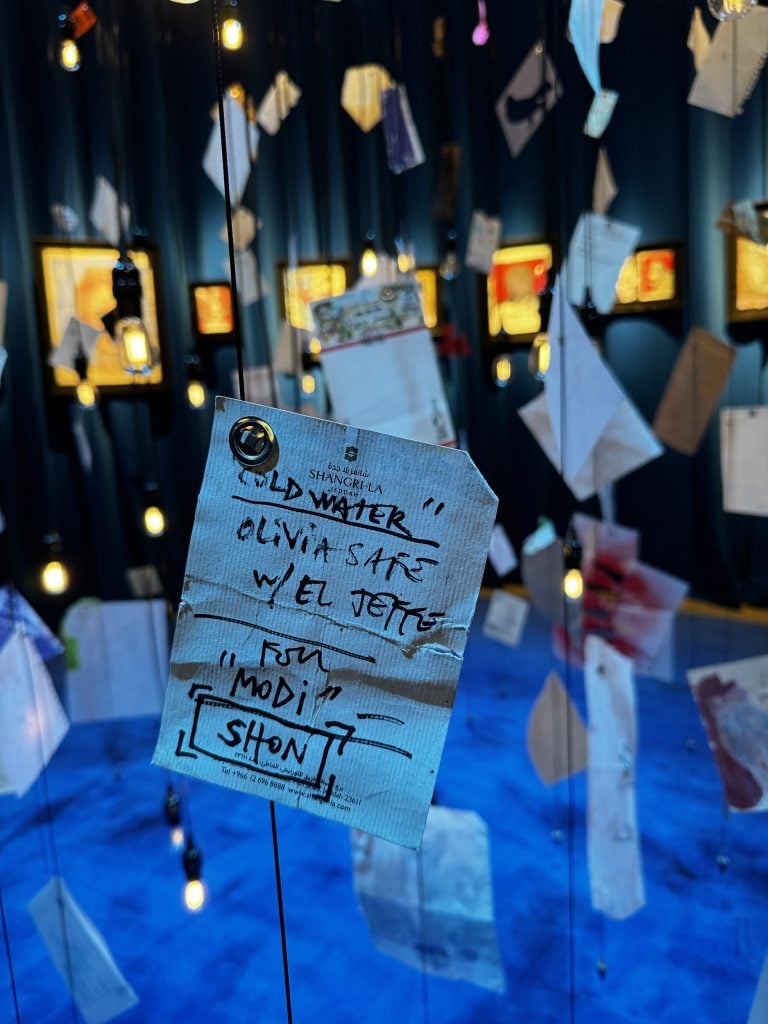
Installation view of “A Bunch of Stuff.” Photo: Min Chen.
In a blue-curtained area is an installation featuring cables hanging from the ceiling and threaded with diverse artifacts. There are feathers, sketches, small collages, cigarette papers, postcards, bookmarks, and cryptic musings on hotel stationery. These are presumably relics pulled from the actor’s archive (or pockets?) and offer the promised peek into his creative thinking—the art of his life, as he might even put it.
The other paintings
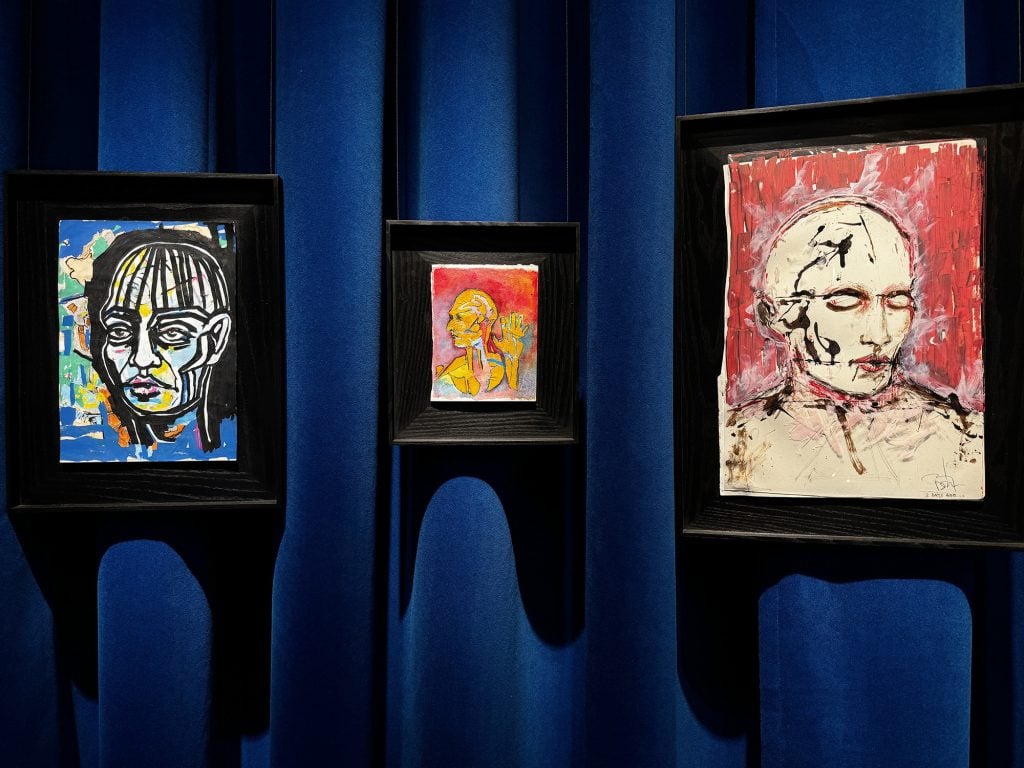
Installation view of “A Bunch of Stuff.” Photo: Min Chen.
As we know from his 2023 sale of prints that reportedly netted him millions, Depp enjoys capturing his friends and compatriots on canvas. In “A Bunch of Stuff,” he’s included studies of Marlon Brando, Jack Kerouac, and Keith Richards, as well as tender portraits of his son Jack and his darling dog Moohman. There are paintings of mysterious characters that Depp has imagined as well, among them “Everyman” and “The Bunnyman,” the exhibition text tells me.
These works vary in style; some have been painted on canvases composed of cigarette papers, which lend the works unique textures.
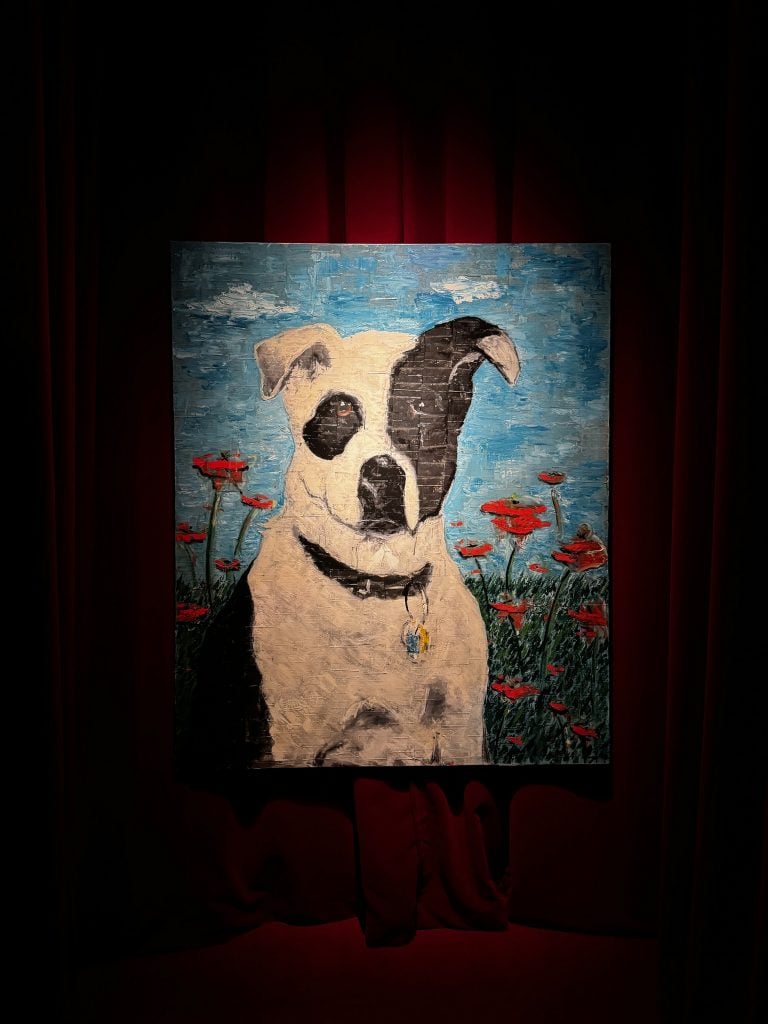
Johnny Depp, Moohman (2008) on view at “A Bunch of Stuff.” Photo: Min Chen.
It seems the actor also has a thing for skulls (maybe because he once played a pirate). A whole series depicts skeletons and skulls as forms of memento mori. A pointillist work frames a skeleton with the stenciled phrase “Death by Confetti,” which Depp explains in an accompanying film thusly: “The business celebrates you… they build you up to this great height, but you’re choking on that. I think the skeletons understand that.”
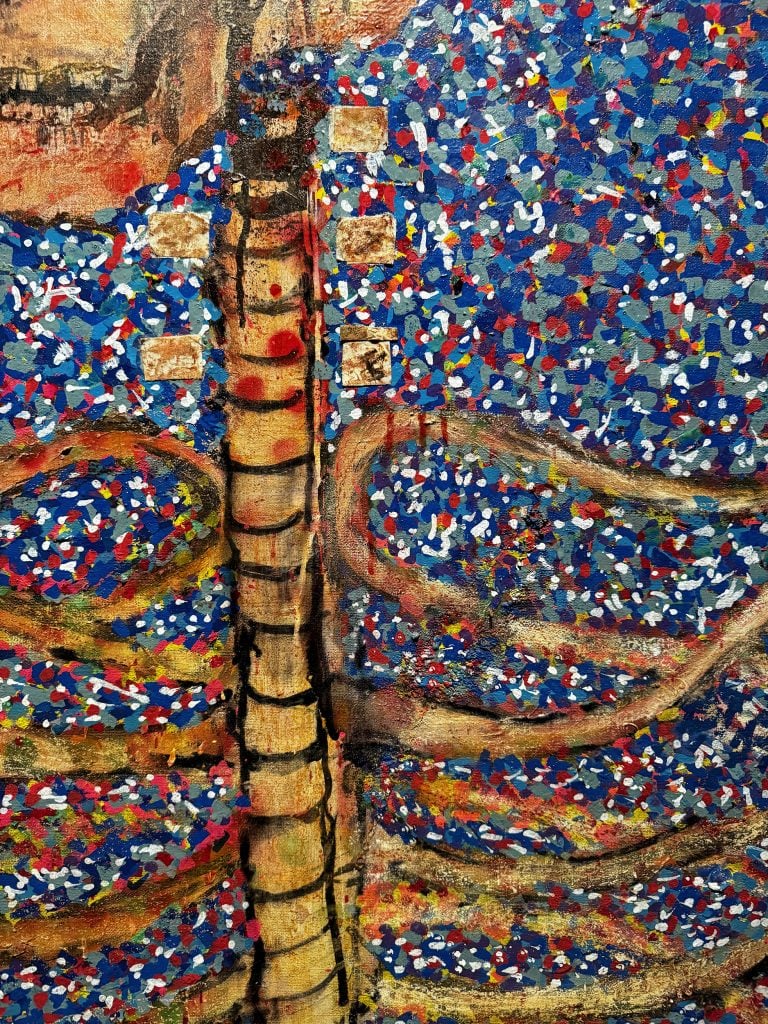
Johnny Depp, Death by Confetti – Celebration (2019–24) (detail) on view at “A Bunch of Stuff.” Photo: Min Chen.
Between this skull and the Hedy Lamarr tribute, one can’t help but sense Depp’s frustration about the damage to his public standing following his 2022 legal battle with ex-wife Amber Heard—his “cancellation,” per the parlance of our times. Or perhaps, in his own words, he’s just “cursed with a dark sense of humor.”
This desk
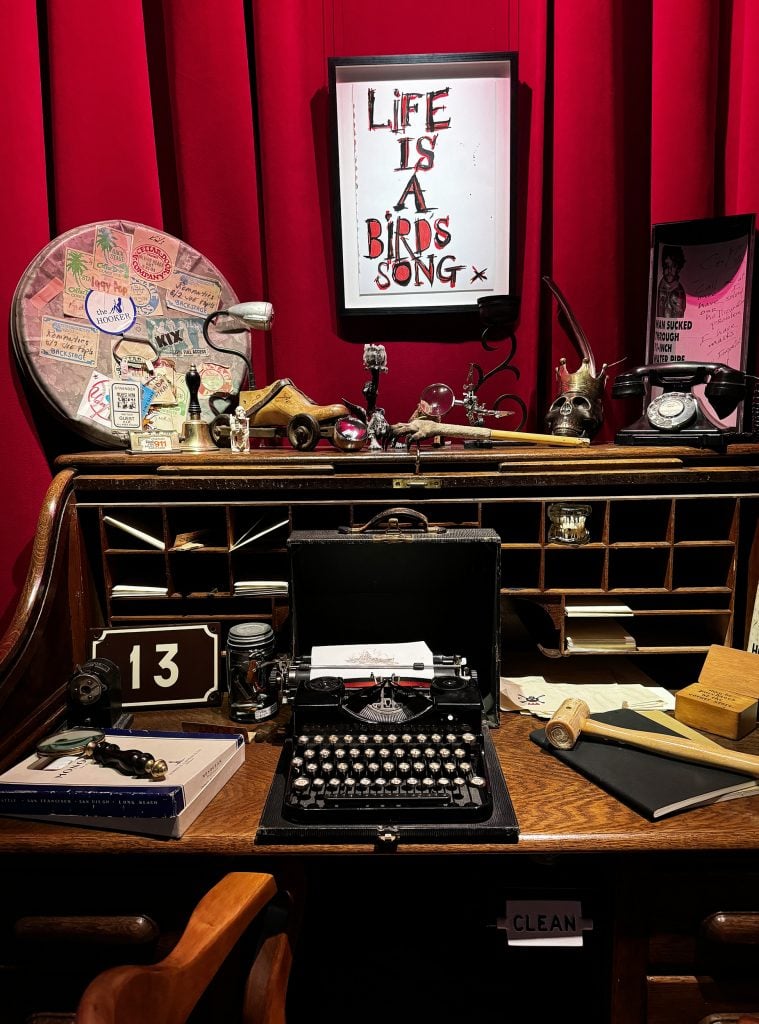
Installation view of “A Bunch of Stuff.” Photo: Min Chen.
The space called the White Box is installed with pieces of furniture in what appear to be recreations of Depp’s private spaces. One looks like a studio, staged with an easel and a cabinet of paint supplies; another a living room, complete with an electric guitar in a corner and a cluttered coffee table. At the entrance to the exhibition, there’s an impressive antique writing desk stacked with a typewriter and all manner of knickknacks—a bell, a magnifying glass, a skull of course, and a cymbal case stickered with old backstage passes, among others. Is this Depp’s actual desk, a stage for his artsy inclinations, or both? No idea, but the desk is very nice.
An animated “visual experience”
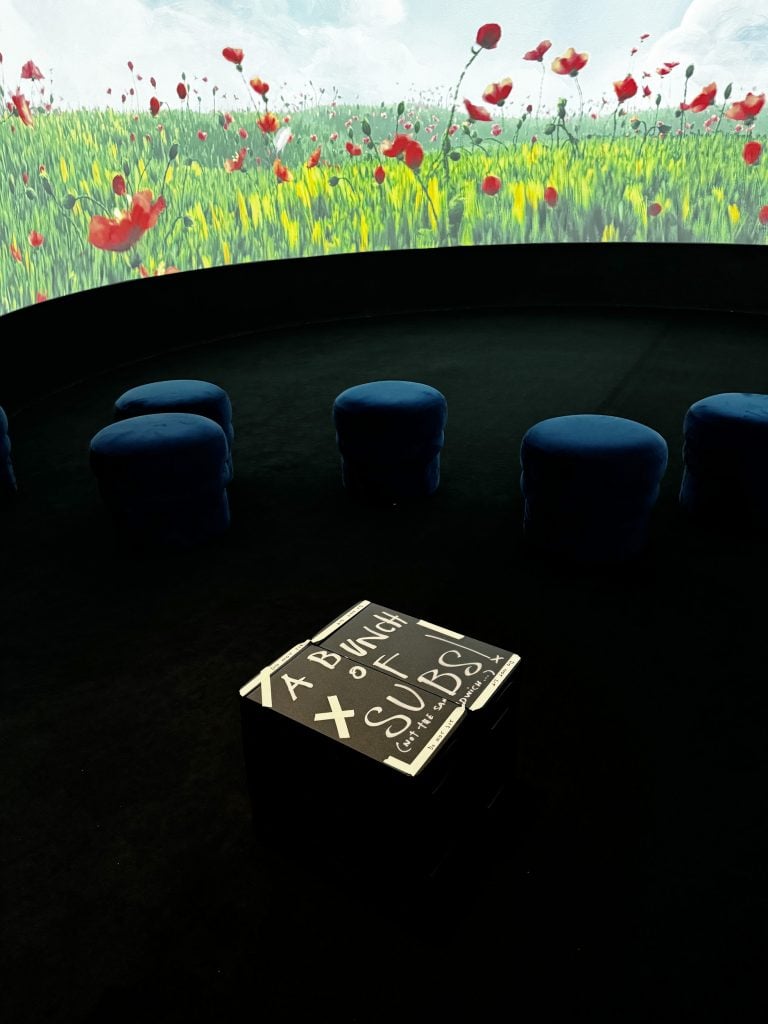
Inside the Black Box at “A Bunch of Stuff.” Photo: Min Chen.
A 13-minute film or “visual experience,” per the exhibition text, plays on loop in the Black Box, animating Depp’s artworks and featuring his narration. In it, he recounts episodes from his life—his nomadic upbringing, his friendship with Brando—and shares how he’s been guided by a creative impulse since he was a child drawing on the walls.
Created by the experiential team TAIT, the film is quite compelling, lending movement and meaning to Depp’s artistic oeuvre, while being unwittingly revealing. “I’ve been more people than most people have been,” he intones in his voiceover. “The question becomes, is there anything that I can offer? Is there anything uniquely me that I can add?” They’re good questions to ask.
“A Bunch of Stuff” is on view at the Starrett-Lehigh Building, 600 W 27th St, New York.

